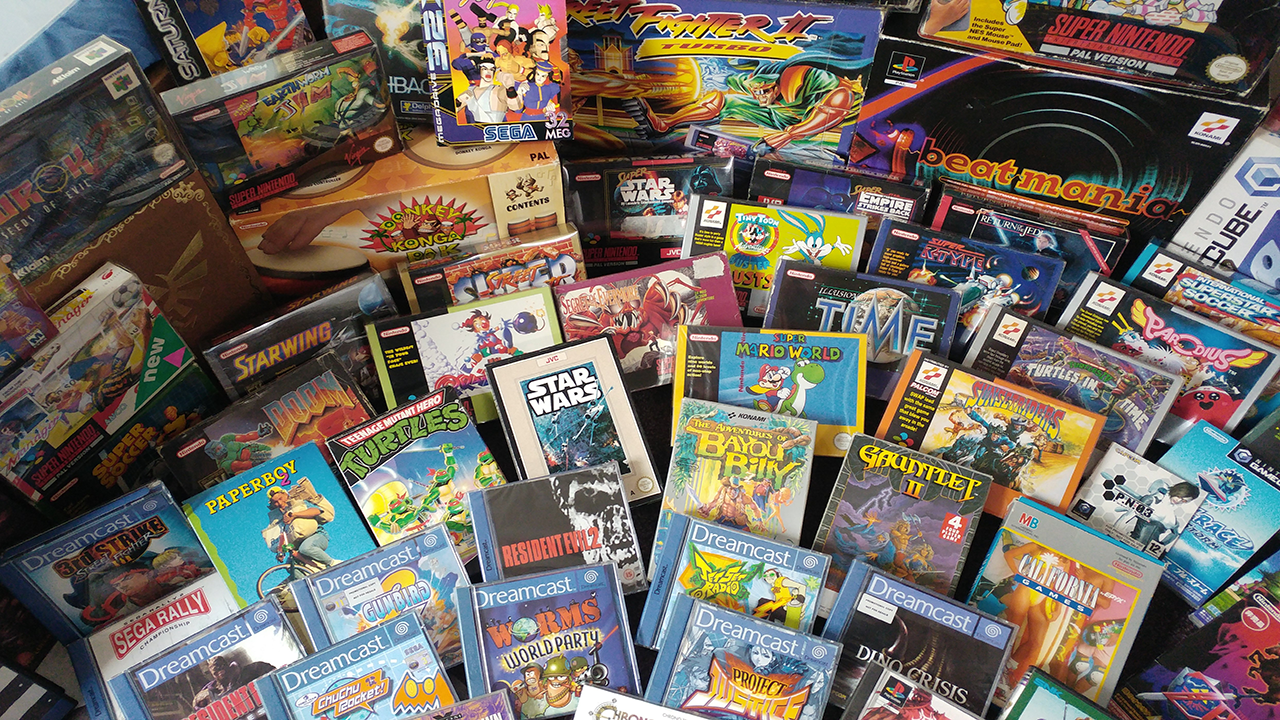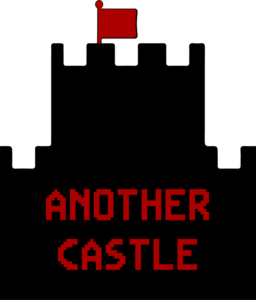
A couple of weeks ago, I made a game spotlight post for the new PS4 catalog addition, Resident Evil 3 Remake. Following that, I made another game spotlight post for the Final Fantasy VII Remake. And, I was appalled that there was little to no information on the back of the boxes. I thought that maybe it was a fluke, and just applied to games like these that have been remade. Especially with the case of FF7R, when it clearly was designed for players who had played the original PS1 version.
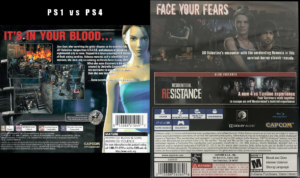
After checking numerous titles in our library, I discovered that a large majority in our PS4 collection contained very limited information about the game contained within. There were a couple that had a little bit of a teaser from the story. The newest addition to our PS4 catalog, Ghost of Tsushima was a good example. But, what was most surprising to me involved the implications of what this all could mean.
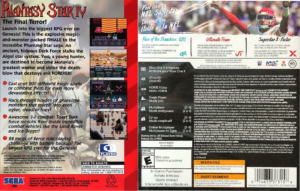
I understand that this can be encompassed under a “changing of the times” sort of deal. Back in the day, developers had the game box out on display at the local retailers like Toys R Us, or rental service companies like Blockbuster Video. The internet was still quite young, and we didn’t have a smart phone with which to instantly look up more information about a video game we knew nothing about.

With the convenience of purchasing digitally, gamers automatically miss out on some of that key information on the back, or do they? If you go to YouTube, and type in any new or obscure game you can think of, chances are there will be dozens, if not hundreds of videos available detailing how the game is, how it plays, and what to expect.

You can also find a plethora of conversations about nearly every video game in online forums, and places like Reddit. Through these discussions, players are instantly able to make a much stronger argument to themselves if they need the game now, or if they want to wait for the game to drop in price. I feel like video game pricing methodology is another topic I’d like to explore in the future.

However, individuals like myself, who mainly purchase physical copies of video games are reminded of the direction the industry has gone to sell their video games. They rely on building hype for these games through streamers, internet advertising, and large social displays through conventions and/or digital services like Nintendo Direct.
However, as a seasoned gamer, and having a background in video game development, I’m quite skeptical of reliable information through all of these avenues. There have been many times in my life, where I’ve read an article, and the person talking about a game hating it. Or, they talked in such a way, that it didn’t appear genuine. And that goes down a rabbit hole of paid advertising in a supposed non-biased media application like a magazine. Well, on either side of the coin they were supporting or arguing said game, I’d find myself on the other side of the argument. Some of the hardest to find JRPGs, and most fun JRPGs were horrendously reviewed in the west. And it is arguable that because of those reviews, those games sold poorly, and naturally made them hard to find today.
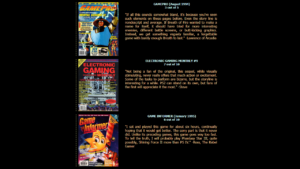
Likewise, some of the highest reviewed games, like the next generation of Madden or NBA, would see tremendous sales support. I have an ongoing joke that many customers that you could play any new Madden, and it would feel the same as Madden 15 or 2005. The rosters change up and players retire, but the game hasn’t really seen much innovation for decades. I know this is an exaggeration, but not by much. And I know a lot of this really speaks volumes to how the video game industry has matured and adapted over the years. I think another topic to explore someday will be the vastness of the video game market, and the demographics associated with it.

From word of mouth in your local town, to publications in magazines and TV advertising, most gamers now look to YouTube and Twitch for their next gaming purchase. The internet was a natural partner to video games, and information sharing increases nearly every nanosecond of the day. So, I can see the argument as to why we don’t need much of anything on the game boxes for information. Just some flashy images to help identify the game on our shelf, and the title on the spine. A lot of us just use the cases for protecting the discs, or making it harder to lose our DS/Switch games.
Really what it boils down to for me is another thing that is lost from what I love about video games when I look back on my life. I remember life as a kid, and Mom or Dad has agreed to let me rent a video game from our local rental store. I, rarely, got games brand new due to their cost, but I rented as often as I could. I’d look at the walls of video game boxes, reading every little detail on the front, back, and sides. Once I finally made my decision, I’d eagerly give my mom the box to go check it out for the next week. And, if I was really lucky, the previous renters hadn’t lost the manual yet. I’d spend my time in the car ride home looking over those manuals page by page.
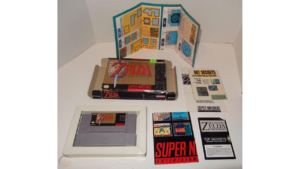
So, it is sad to see those memories disappear. It’s those memories that tug the heart strings when I open an indie game like Cave Story on the Nintendo Switch, and see a full color manual. Another topic for another day involves game manuals and tutorialization. What pulls at me the most involves what life will be like 20 years from now.

Think about it, I mean, really think about it, if you are old enough. This October, twenty years ago, the year 2000, the PS2 released in the US. In another six years, the PS3 will be 20 years old. I’m curious what people will think about when they think back on these systems. What will nostalgia look like for them, and how will they go about chasing it? Will they be able to pop a PS3 game in and receive the bug-fix patches and updates? Will servers still be available to play multiplayer games on? We are seeing some promise of this with the Xbox One resurrecting games like Call of Duty: Modern Warfare 2. But, what about 30, 40 years later? The Atari 2600 hit 40 years old in 2017, and it is truly awesome to watch kids come in to the store to play it. Sure they tease about the crude graphics and the one button controller. However, they are laughing and having fun.

Often times they are playing with a parent or grandparent, and that really is what it boils down to for me. That shared connection. Games are meant to be enjoyed, and talked about with friends. Just like a really good book, you express how the story made you feel and think. It gets the next person excited to try a game they’ve only ever heard their friend talk about. Some of them will do extra research and find things online about it, but often times, the friends you trust are enough.

For me, I’m sad to see them go, I think I’m holding on to a losing battle for physical media. There are too many “pros” for going digital than the “cons” of staying physical. But, there are also some really good reasons for keeping physical media, but that is yet another post topic entirely. When I sit down to play a retro system and game, I go through a mental process.
It’s far too easy to play a game, and call it crap for being too old and dated. I often will consider the technical specs of the system, say the Super NES, or the original Game Boy. I will find an image online of the game’s box, and look it over, just like I did in the rental stores back in the day. I’d try to find some form of the manual to read through. And then, I’ll finally boot up my selected game. You might think I’m crazy, but it really helps me enjoy the game the way it was meant to be.
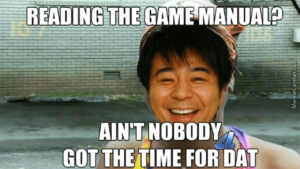
Anyways, this topic went on far longer than I expected, but I think it’s an interesting conversation to be had. What about you? What are your thoughts on video game boxes? Where do you think video games and nostalgia for them will be in 20 years? Will video games be strictly digital in the next 20 years? Where do you go for information? What sort of things have you noticed about the industry that you do or don’t like? What other topics should we explore?
Anyways, thanks for reading, and feel free to check out our other topics under “Games We Recommend,” and our personal story of running small business startup with marriage and kids under “Replay in Reality.”


